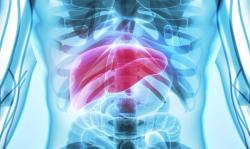
OR WAIT null SECS
Incident Migraine is Linked to Healthy Cardiovascular System
A new study found that individuals with healthier cardiovascular systems are more likely to develop migraines, linking incident migraine to lower cardiovascular risk.
New data indicates that a healthy cardiovascular system may not prevent someone from getting a migraine.1 In a recent study, the odds of having prevalent or incident migraine decreased as cardiovascular risk scores increased, suggesting the development of migraine is linked to a relatively healthy vascular system.
“The decreased association with increasing cardiovascular risk score categories was observed in both men and women, indicating that the underlying vascular health status is a predictor of having or developing migraine,” wrote investigators, led by Linda Al-Hassany, MSc, MD and PhD candidate, from Erasmus University Medical Center in the Netherlands.
A previous study in the US found women with greater cardiovascular risk were more likely to have a history of migraine but less likely to have active migraine.2 Investigators recognized the need to study this topic among men and Europeans, so they conducted a study to assess the association pattern between a cardiovascular risk score and migraine activity in Dutch men and women.1 The cardiovascular risk score was the most recent European Systematic Coronary Risk Evaluation 2 (SCORE2), considering age, cholesterol levels, smoking status, diabetes, and systolic blood pressure.
The study included a population-based Lifeline cohort of 140,915 community-dwelling adults living in the northern part of the Netherlands with a mean age of 44.4 years, 58.5% women, and 83.1% White. People were excluded if they had a terminal illness, were incapacitated, had severe mental illness, and were unable to visit their general practitioner or complete the questionnaires.
Baseline characteristic data were collected between November 1, 2006, to December 31, 2024, and as a follow-up, participants completed questionnaires approximately every 1.5 and 2.5 years, with the last self-reported migraine assessment taking place between October 1, 2019, and January 31, 2021. Migraine status was classified as prevalent (migraine at baseline), incident (no migraine at baseline but migraine in ≥ 1 follow-up), and none. Among the sample, 25,915 (18.4%) had prevalent migraine and 2224 (1.9%) had incident migraine.
SCORE2 risk scores were measured once at baseline and created groups based on the sum of points of individual risk factors: <1.0%,1.0% to <2.5%, 2.5% to <5.0%, 5.0% to <7.5%,7.5% to <10.0%, and 10.0%. The team analyzed the data between March 1, 2022, to August 16, 2024.
Compared with individuals with a SCORE2 category of < 1.0%, the odds of having prevalent or incident migraine decreased with increasing SCORE2 categories, with the range as follows:
· Prevent Migraine: From odds ratio [OR], 0.93; 95% confidence interval [CI], 0.90 to 0.96 for a SCORE 2 category of 1.0% to < 2.5% to OR, 0.43; 95% CI, 0.39 to 0.48 for a SCORE2 category of ≤ 10.0%
· Incident Migraine: From OR, 0.63; 95% CI, 0.57 to 0.69) for a SCORE2 category of 1.0% to < 2.5 to OR, 0.17; 95% CI, 0.10 – 0.27) for a SCORE2 category of ≥ 10%
The team observed a similar pattern in both sexes but more noticeable in women. The prevalent migraine odds for women ranged from OR, 1.21 (95% CI, 1.16 to 1.25) to OR, 0.70 (95% CI, 0.58 to 0.83), compared with a range of OR, 1.19 (95% CI,1.09 to 1.29) to OR, 0.84 (95% CI, 0.72 to 0.99) in men. This was the same pattern for incident migraine, ranging from OR, 0.72 (95% CI, 0.64 to 0.80) to OR, 0.20 (95% CI, 0.07 – 0.43), compared with men who had a range of OR, 1.18 (95% CI, 0.92 to 1.52) to OR, 0.44 (95% CI, 0.22 to 0.78).
Overall, the analysis showed incident migraine had lower odds across the cardiovascular risk score categories compared with prevalent migraine. Additionally, an analysis stratified by age did not show evidence that age influenced the association between cardiovascular risk scores and migraine activity status.
“Indeed, our results support the hypothesis that a relatively healthy cardiovascular system (expressed as a lower SCORE2 category) increases the probability of developing migraine in the future (incident migraine),” investigators wrote.
References
- Al-Hassany, L, MaassenVanDenBrink, A, et al. Cardiovascular Risk Scores and Migraine Status.JAMANetworkOpen.2024;7(10):e2440577.doi:10.1001/jamanetworkopen.2024.40577
- Ibrahimi K, Rist PM, Carpenet C,et al.Vascularriskscoreandassociationswithpast, current, or future migraine in women: cohort study.Neurology.2022;99(16):e1694-e1701. doi:10.1212/WNL.0000000000201009


